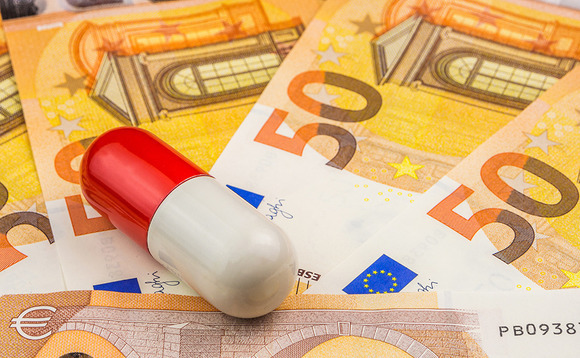
Benelux biotech and pharma startups attracting larger rounds

With average tickets for early-stage investments rising significantly over the past three years, Francesca Veronesi looks at the drivers boosting the Benelux biotech and pharma space
As of September, the Benelux healthcare venture space had recorded its highest yearly aggregate value to date: early-stage investments amounted to an aggregate enterprise value of €288m, up 41% compared with 2018. The €116m round for AM-Pharma in July was the largest VC round for a Benelux-based healthcare startup, followed by last year's €64m round for Belgium-based iTeos Therapeutics, according to Unquote Data.
Average tickets for early-stage investments have jumped from €13m in 2017, to €20m the year after and €36m this year, while volume has remained largely unchanged in the past five years. Significant developments in the industry mean that a group of companies have now reached a certain degree of maturity and therefore attract larger tickets.
Says Forbion managing partner Sander Slootweg: "Since the Human Genome Project, gene-based therapies have been developing fast, but commercialisation was deemed too cumbersome and expensive for a long time. Over the past 5-10 years the commercial feasibility of such research has improved, given that many technical hurdles related to the upscaling of manufacturing and cost of goods have been overcome." For example, the AM-Pharma round will help finance a pivotal phase-III study, which is usually expensive, since it involves international multi-centre trials with many patients, which can be logistically complex, Slootweg says.
For some years now, a common practice for higher quality, later-stage private companies was to float on Nasdaq in the US. However, as VCs have stepped up in terms of capital availability, they can provide larger tickets. "Startups manage to resist for longer as privately owned businesses attracting venture capital, instead of being acquired by corporate buyers or listing as soon as a good offer is available," says Gilde Healthcare's Pieter van der Meer.
A prolific fundraising environment has allowed Benelux and European VCs to close funds much larger than their predecessors in the past few years. Over the past 12 months, Forbion IV, Capricorn Sustainable Chemistry Fund and Vesalius Biocapital III all held final closes, and more are to come: LSP has already gathered €500m for its flagship fund LSP VI and expects to close towards the end of the year, Unquote has learned. Moreover, next year should kick off with the launch of Gilde Healthcare V, targeting a final close in excess of €250m, van der Meer told Unquote. The GP is looking to attract more international LPs. "In our next vehicle we are expecting to welcome a few more US LPs – we have been working with funds-of-funds based there with this goal in mind," he says.
Virtuous cycle
The maturity of the Benelux healthcare venture space has not left transatlantic VCs indifferent. US VCs are sporadically investing in the market, impacting aggregate value. Philippe Degive, investment manager at the Société Régionale d'Investissement de Wallonie, says: "We have not seen a huge increase in the number of Wallonia-based companies receiving backing in the past couple of years, but ticket sizes are larger. US VCs, which can provide larger tickets than European counterparts, are more often in conversations when rounds are being arranged than that previously seen."
The Benelux biotech and pharma venture market has traditionally been more sedate than that of the DACH region, the UK and France in terms of both aggregate value and volume. Even having outperformed in 2019, the region is responsible for only 13% of Europe's aggregate value. Although not as large as some of its European counterparts, the Benelux venture space displays a high degree of sophistication, sources say. And the relatively small market has also generated some of the biggest pharma and biotech venture exits in Europe, such as the listing of UniQure on Nasdaq in 2014 and the trade sale of Acerta Pharma, bought by AstraZeneca in 2015.
It remains to be seen whether the startups backed with late-stage rounds in 2019 will translate to similar successes for their backers upon exit. For now, the virtuous cycle of advancing research, VC fundraising spree and increased US venture backing continues.
Latest News
Stonehage Fleming raises USD 130m for largest fund to date, eyes 2024 programme
Sponsor acquired the public software group in July 2017 via the same-year vintage Partners Group Global Value 2017
Stonehage Fleming raises USD 130m for largest fund to date, eyes 2024 programme
Czech Republic-headquartered family office is targeting DACH and CEE region deals
Stonehage Fleming raises USD 130m for largest fund to date, eyes 2024 programme
Ex-Rocket Internet leader Bettina Curtze joins Swiss VC firm as partner and CFO
Stonehage Fleming raises USD 130m for largest fund to date, eyes 2024 programme
Estonia-registered VC could bolster LP base with fresh capital from funds-of-funds or pension funds









